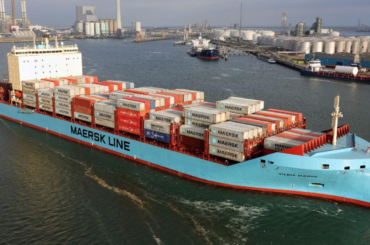The Ukrainian military’s Operational Command South says that Russia used a drone to attack grain facilities at the port of Reni on the Danube River early on Monday morning. One silo was destroyed and a tank farm was damaged.
The attack was done by Shahed-136 suicide drones made in Iran, the order said. Russia bought hundreds of the medium-sized drones with explosives from its friends in Tehran. It then used them regularly to attack civilian infrastructure, often far from the front lines. Recent targets have been grain sites in and around the Port of Odesa, and the Ukrainian government says that up to 60,000 tonnes of grain bound for China were destroyed by Russian strikes in the last week.

But Monday’s attack is the first time that a port on the estuary of the Danube River in Ukraine has been hit. The attack threatens a key way for Ukraine to send food. Since the start of the attack in 2022, Ukraine has only had free access to sea trade through the ports on the northernmost branch of the Danube River delta. Last August, the Black Sea Grain Initiative reopened Ukrainian grain terminals in and around Odessa. However, Russia pulled out of the deal last week, and now only the Danube ports of Reni and Izmail can be insured. Russian threats against shipping in the northwest part of the Black Sea have stopped war risk insurance for all ships going to and from the huge grain terminals around Odessa.
Because of the attacks on Reni, neutral ships might also have to stay away from the Ukrainian side of the Danube. About 30 ships have stopped near Izmail to wait for more information about how the bombs will affect the area.
Reuters says that insurers on the important London market are rethinking their rates and whether or not they will cover trips on this river route. One source told Reuters, “The premiums for those who are still quoting will go up.”
Wheat prices have gone up by 8.5% in one day on the Chicago Board of Trade because of the Russian strikes. During the last big price spike, last year, basic food supplies became too expensive for some low-income countries to buy, and high grain prices made it harder for charitable aid programs to buy in bulk. The UN and the World Food Programme have warned that the ongoing disruption of Ukrainian grain exports could have the same effect again.







